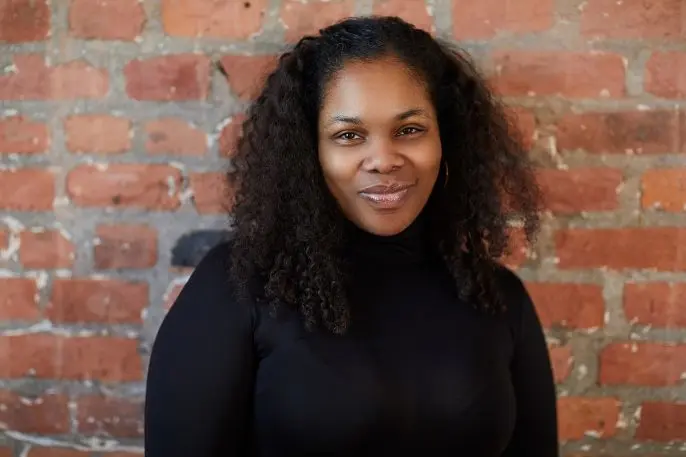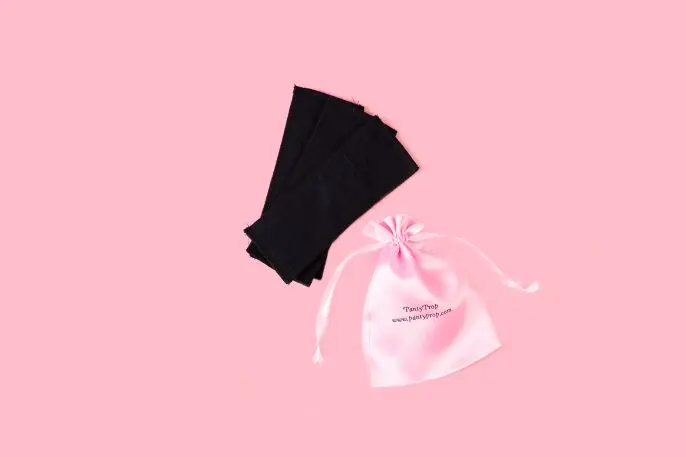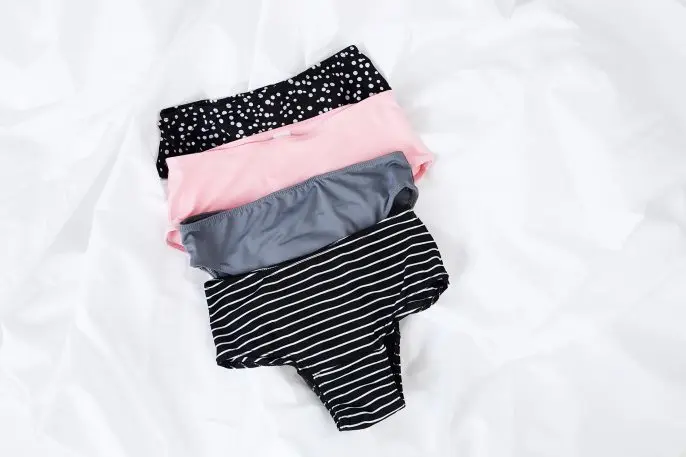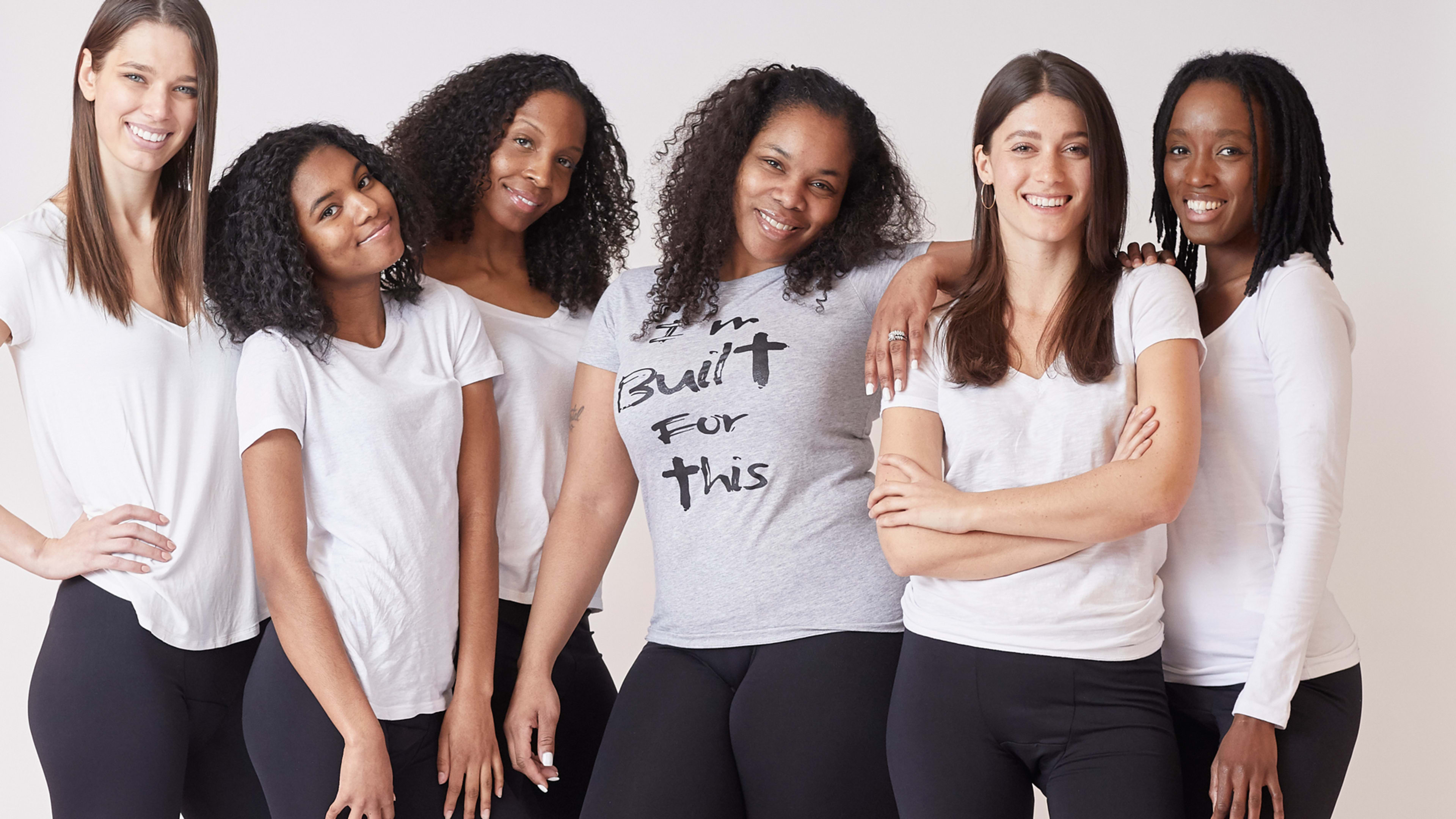While Thinx was plastering the New York City subway with enormous Georgia O’Keefe-inspired ads, Crystal Etienne, a black woman from Flushing, Queens quietly launched her own period brand, PantyProp.
Thinx founder Miki Agrawal often talked about how investors–who are disproportionately male–could not understand the point of period panties. But Etienne knew it would be infinitely harder for her: Not only did she have less entrepreneurial experience than Agrawal, but only 0.2% of all VC deals go to black women. “As an African-American woman, I am the underdog,” she says. “You go into a room full of investors and not a single one looks like you.”
Funding wasn’t an option, so Etienne bootstrapped PantyProp, making a small run of underwear in the Garment District. But Etienne also had some insights her competitors didn’t have. From her own experience–and through months of consumer research–Etienne discovered that while 62% of American women prefer pads, this figure is much higher in the black, Asian, and Middle Eastern communities. So she created period underwear into which you could insert a pad, something that Thinx did not produce. And while Thinx has thrived on risqué marketing, Etienne believed that many women in her community would appreciate a brand with a more feminine and traditional spin.

Here, Etienne explains how she launched her business.
Fast Company: Tell me about PantyProp.
Crystal Etienne: PantyProp is a brand that offers a comprehensive line of fashionable and hygienic garments with built-in technology for incontinence and feminine care. We offer swimwear, activewear, sleepwear, and underwear that has patent-pending technology that allows the garment to mold to your body.
The products are made in the U.S., feature organic cotton, and are chemical-free. I hand selected every fabric with love and ensure that our manufacturers are paid a fair wage. I want my customers to feel good about what they are putting on their bodies.
FC: What made you decide to launch it?
CE: In my twenties, I gave birth to my daughter. One day, out of the blue, I noticed I would laugh or cough and had no control over pesky leaks. At first I felt embarrassed, but I couldn’t find a solution on the market.
As my daughter was growing up, she got nervous about going to swim meets on her period. I couldn’t bear the idea of her feeling ashamed or awkward. I wanted her to know she could do anything with confidence. So I created the solution: PantyProp.

CE: Yes, absolutely. In the past, there was not much of a conversation around feminine care, in general, in my community. And yet, there are 600,000 searches in Google each month asking how to handle life’s “pesky leaks,” shall we say. We are not taught to talk about how to navigate these issues, yet they affect everyone.
As an African-American mother, I’ve always taught and spoken openly to my daughter about good hygiene and feminine care, simply because I wanted her to be aware of how to handle it. I believe we need to encourage more parents to talk and teach young girls as early as 9 about how to handle this aspect of their lives. And this means having conversations in a comfortable and confident way.
FC: Are black entrepreneurs underrepresented in your industry? Why do you think this is?
CE: In my experience, there is blatant discrimination from the VC firms toward black CEOs. For example, PantyProp launched before many other startups in my same space. Within a matter of months, we scaled to six-figure revenue, became profitable, and demonstrated market need. At that time, I reached out to many investors and accelerators to get funding to help scale faster. My queries either received no response at all or I was told, “We are not funding in that space.”
A few months later, I saw many companies similar to mine launching. Even though those founders had not yet achieved growth and had the same business experience that I did, they got funded by these same firms who said, “We are not funding in this space,” or, “It’s not a good fit,” or simply did not answer at all.
The only difference I could see between me and these founders was the color of my skin.

CE: According to the statistics, I am the underdog. I am African-American. I am a woman. I am not a millennial. I am a solo founder, and I have not raised millions of dollars from VCs.
But despite all this, I managed to succeed. Our e-commerce site allows customers to shop and purchase from any country in the world, and the customizable swimwear separates allow women to shop for their unique body type from the comfort of their home. PantyProp grew by 400% to over $1 million in sales in less than 10 months, even though I bootstrapped the company.
FC: Have you deliberately tried to be a visible face of your brand?
CE: No. Honestly, I wasn’t concerned about building a personal brand. My priority is to help the people who really need our products–women like myself, girls like my daughter, the special needs community, and men, everyone who silently suffers from leaks and stains who want to feel confident every day.
FC: What is your advice to other black people who are passionate about fashion/apparel and want to make an impact?
CE: I want black men and women to think big, step into their power, and believe they can do anything. A lot of black people only think they can make a difference at the local level. I want them to know they can have global impact.
I recently spoke to a friend of mine who runs a very successful travel company in New York. I told her to take the model and apply it to other states. If you don’t think big, you won’t achieve big things. You don’t need to stay at mom-and-pop business.
This interview has been edited and compressed for clarity.
Recognize your brand’s excellence by applying to this year’s Brands That Matter Awards before the early-rate deadline, May 3.
